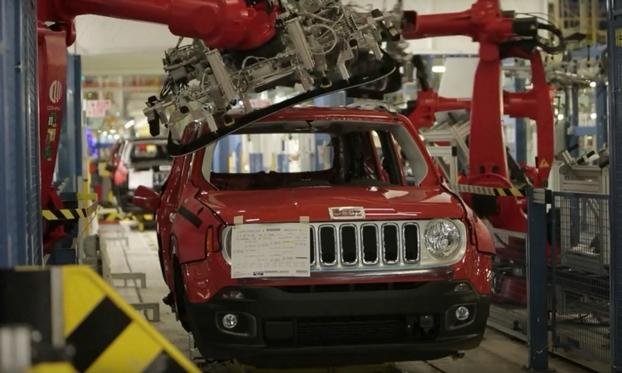Jeep Joins Nissan, Honda Others Getting Big Benefit from European Production

Fiat Chrysler Automobiles' decision to build the Jeep Renegade in Italy is paying off. Italy is the subcompact SUV's second-largest market after the U.S. Even more impressive is that Italy sales are almost three times higher than France, the Renegade's No. 2 market in Europe.
FCA is not the only automaker in Europe that has been rewarded by customers in a country where it produces.
The Suzuki S-Cross is the top-selling compact SUV in Hungary with a near 20 percent market share in the segment, according to figures from JATO Dynamics. The car went into production at Suzuki's Esztergom factory in 2013 and, although popular elsewhere in Europe, the S-Cross doesn't come close to beating its rivals in any other EU country.
The Kia Sportage is Slovakia's No. 1 compact SUV. It is built in Kia's Zilina factory in the country. Hyundai's European sales have benefited enormously since the brand opened a plant just across the border from Kia in the Czech Republic.
UK customers like cars produced in Britain. Nissan, which started production in Sunderland, England, 20 years ago, makes the country's top-selling compact SUV, the Qashqai, and ranks second in the subcompact SUV sector with its Juke, which closely trails the Opel Mokka, sold as a Vauxhall in the UK.
Vauxhall, owned by General Motors, and Ford have a long history of car manufacturing in the UK. They have battled for decades for first and second place in the country's overall sales. Ford seems to have avoided any repercussions from buyers for ending its UK carmaking in 2002.
Staying with the UK, Honda started building cars there in 1992 and now sells 40 percent of its European volume within the country.
Of course, local loyalty isn't the only reason for the sales success: workers and their families often receive generous discounts to buy cars from the brand.
But if the market's big enough, the potential effect on local sales can outweigh traditional cost consideration.
Volvo head of purchasing and manufacturing Lars Wrebo recently told Automotive News Europe that the automaker chose the U.S. state of South Carolina for its new North American plant although Mexico would have been cheaper.
He said: "Choosing to put the plant in the U.S. sends a strong signal that we are serious about the market."
